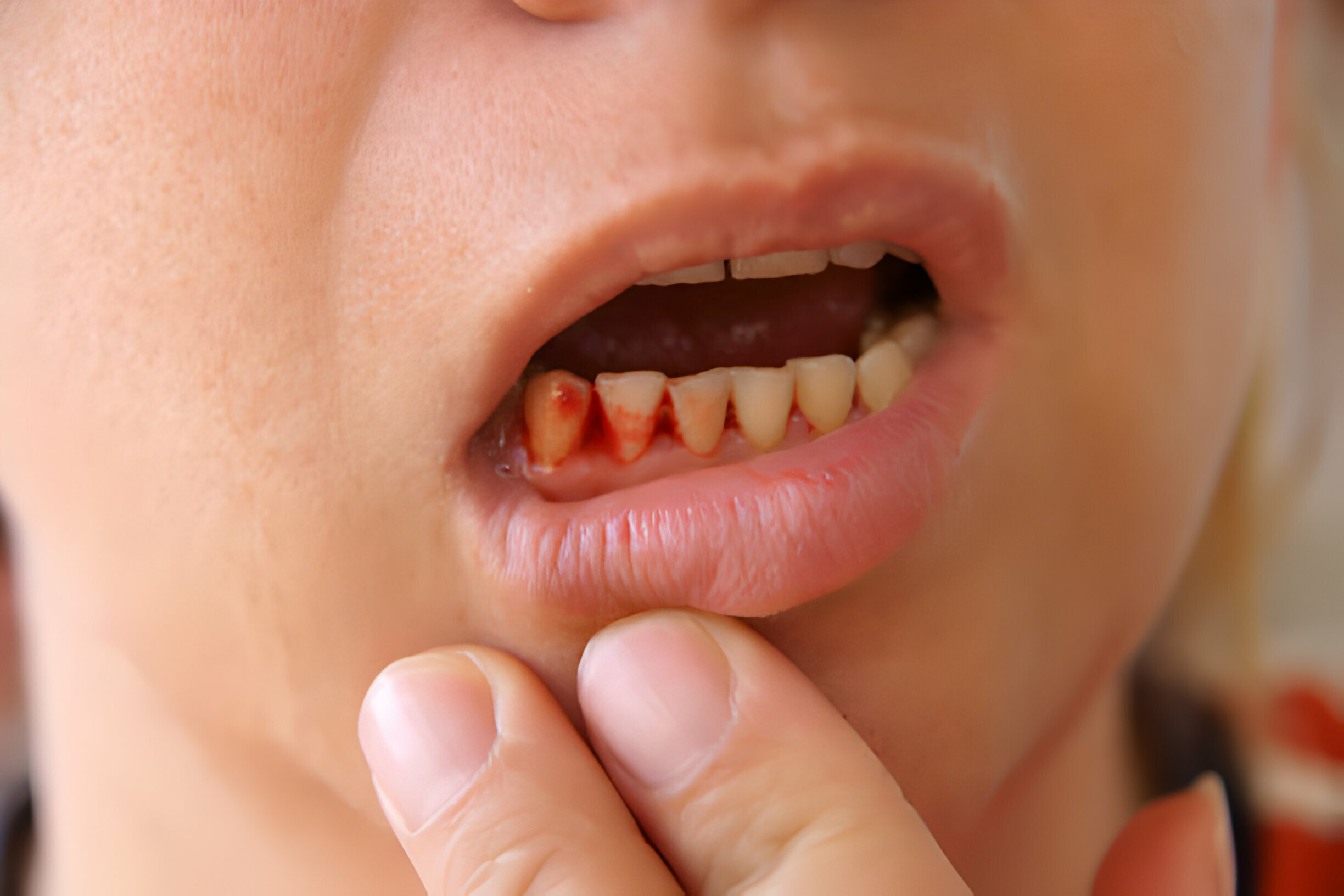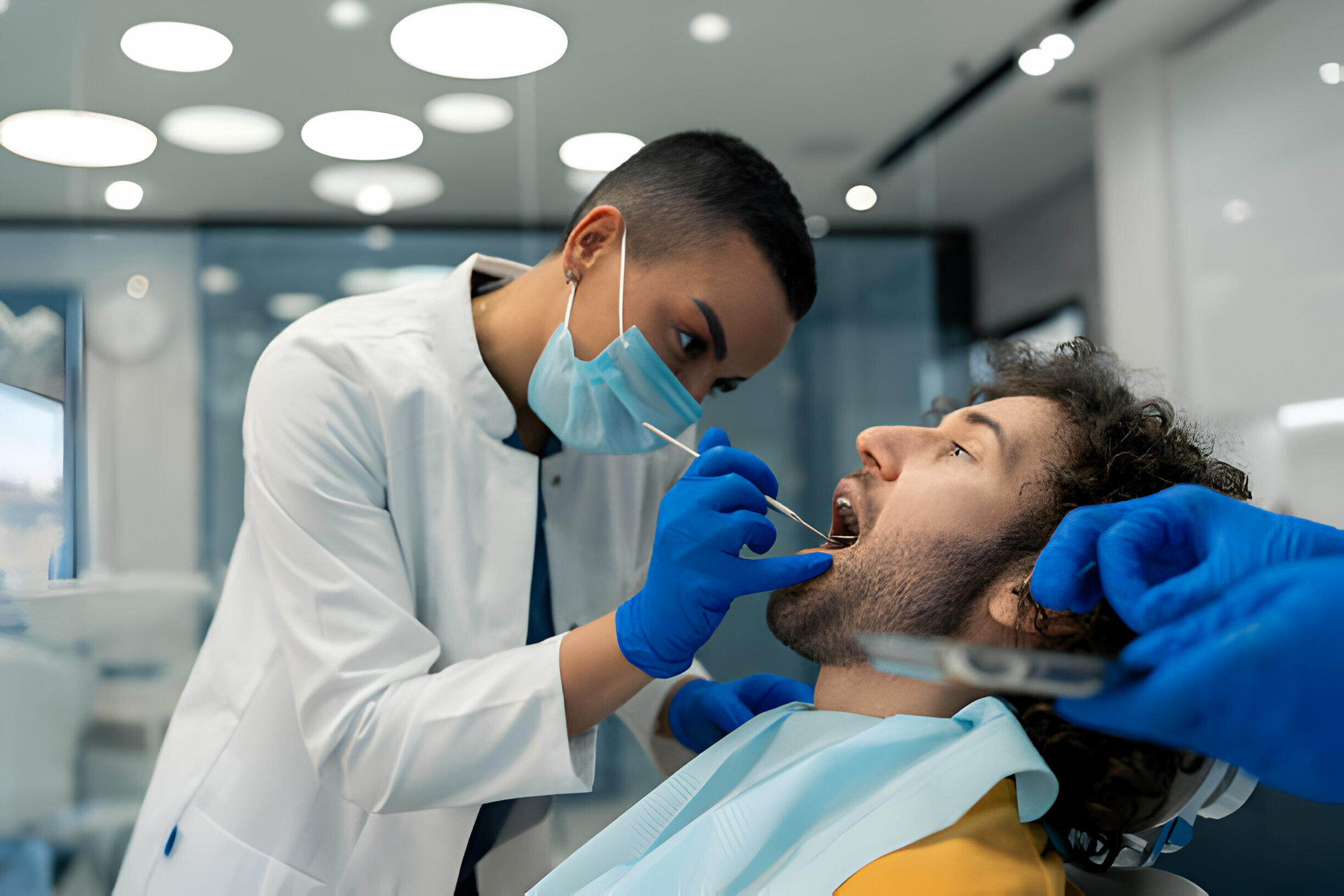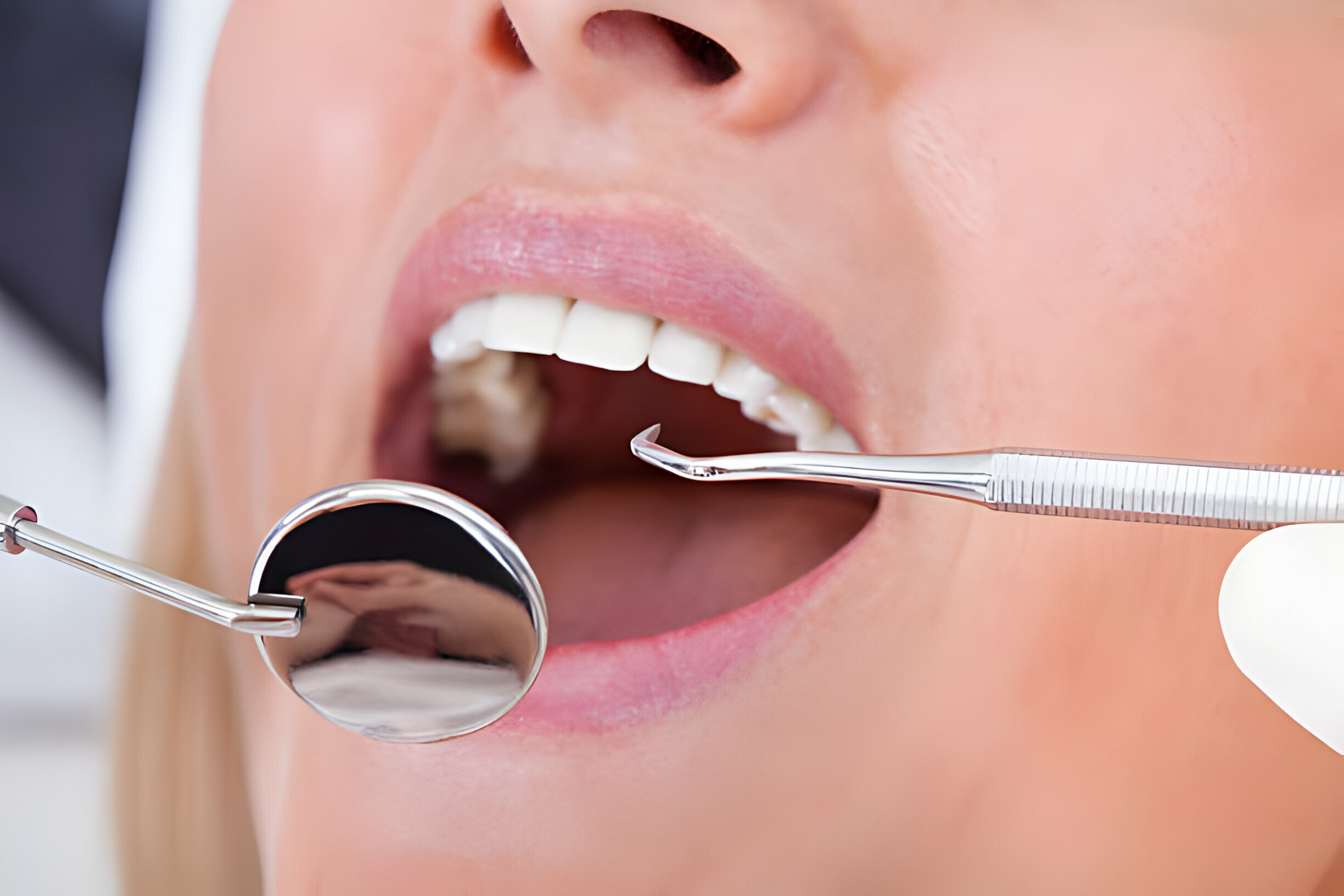
Summary:
Have you ever experienced a persistent toothache that doesn’t leave despite taking painkillers?
If you’re experiencing such a condition, chances are it’s a dental emergency. Knowing what to do during such instances is the key to preventing further damage. Seeking emergency medical services during such cases can guarantee sound oral health and your overall well-being.
Interestingly, however, other oral conditions are not emergencies. This blog will examine different types of dental emergencies and how to navigate them.

Let’s learn more about them with topics like:
- What are Dental Emergencies?
- 7 Common Oral Emergencies You Should Know Of!
- How to Navigate Through Common Oral Emergencies?
- Unsure Whether You’re Experiencing A Dental Emergency?
- Preventative Measures to Help You Navigate Through Dental Emergencies
Nearly 2 million individuals rush to their nearest hospital emergency department for dental pain.
What are Dental Emergencies?
A dental emergency is defined as any oral condition that requires immediate care from a dentist and, if left untreated, can lead to further harm.
Although not all dental concerns are categorized as oral emergencies, seeing your dentist in Dallas, GA, is critical if you are experiencing continuous pain or bleeding. This often promotes early problem-solving solutions to avoid future damage.
7 Common Oral Emergencies You Should Know Of
1) Broken or Chipped Teeth
Biting down too hard or falling might cause tooth breaking. A chipped tooth is not only painful but also impairs your smile. Furthermore, a chipped tooth has sharp edges that can cut the sensitive tissues of your mouth.
Therefore, getting prompt care plays a major role in easing the discomfort of a chipped tooth and preventing further damage to your oral cavity.
2) Toothache
Have you ever experienced unexpected pain in your tooth? An unexplained toothache is never a good sign. Although some discomfort may be controlled with over-the-counter pain relievers, using medicines to mask the pain may make it difficult to pinpoint the source of the problem.
The pain might be an indication of a toothache. Failure to seek urgent dental care may cause the tooth infection to spread, often leading to severe dental decay, and in worst cases, tooth loss.
3) Knocked-out Tooth
If you indulge in contact sports, you may see someone having their teeth knocked out, or might be the victim. It’s important to understand the possibilities accompanying the sport!
Accidents, such as falling on a stairway, can also cause a tooth to be knocked out. A knocked-out tooth can be painful, and immediate dental treatment is required.

4) A Lost Tooth Crown or Filling
Dental restorations, such as crowns and fillings, restore chewing function while also protecting a severely damaged or diseased tooth.
As a result, if one of these dental restorations is knocked out or destroyed, you must have it replaced immediately. It prevents the susceptible tooth from being reinfected or damaged.
5) Abscess
Poor dental hygiene is one of the leading causes of tooth abscess, an infection between the tooth's roots and between the gums and teeth. If left untreated, the infection can spread to other healthy teeth and, in certain situations, the entire body.
Infection symptoms include a large pimple on your gums, severe pain, and an unpleasant taste in your mouth. Schedule an appointment with your dentist to avoid additional hazards to dental health.
6) Broken Orthodontics
Braces are meant to keep your teeth in place while withstanding chewing pressures. This signifies that they are constructed of a durable substance. However, the iron wires used in traditional braces can hurt your gums and cheeks.
The broken metallic wires can create minor wounds that are uncomfortable. Furthermore, continuing to use damaged wires might cause the teeth to straighten more slowly. Seeking prompt dental treatment is critical to avoiding serious harm to your gums and cheeks.
7) Pain and Bleeding After Tooth Removal
It is typical to have pain and mild bleeding following a tooth extraction. However, if the discomfort or bleeding persists, you should seek quick dental treatment.
How to Navigate Through Common Oral Emergencies?
Here are some management tips for common dental emergencies in Dallas, GA:
- Toothache: Schedule an oral appointment with your emergency dentist as soon as possible! Additionally, rinse your mouth with salt water and apply a cold compress to your cheek on your way or while you wait for the treatment.
- Broken Orthodontics: Push the metal wire into a comfortable position without cutting it. Besides, it would help to cover the exposed area with a cotton ball and consult an orthodontist.
- Dental Abscess: Visit your dentist as soon as possible, and rinse your mouth with salt water several times daily to help pull pus to the surface. However, once done, ensure you reach out to your dentist immediately.
- Broken/Chipped Tooth: Rinse your mouth with lukewarm water and attempt to save all the fragments. Stop the bleeding with a clean gauze pad and make an emergency appointment.
- Knocked-out Tooth: Collect the tooth, carefully clean it without retaining the roots, store it in a glass of milk, and schedule an appointment with a dentist as soon as possible.
- Pain and Bleeding After an Extraction: To minimize bleeding, bite on a clean gauze pad. Consult your dentist to identify the source of the bleeding and treat it.
Unsure Whether You’re Experiencing A Dental Emergency?
Some instances are not dental emergencies. In other words, while you should visit your dentist as soon as possible, waiting for an appointment during regular office hours is fine.

Examples of non-dental emergencies include:
- A dull or moderate toothache.
- A minor chip or crack in a tooth.
- Broken braces.
- An object is trapped between your teeth.
- Minor soft tissue damage (similar to a minor cut or sore).
However, you should immediately consult a dentist or healthcare practitioner if you have serious bleeding or discomfort.
Preventative Measures to Help You Navigate Through Dental Emergencies
1. Maintain Oral Hygiene:
Regular brushing and flossing are essential for preventing tooth decay, gum disease, and other oral health problems. Brush twice daily and floss daily to eliminate plaque and keep your teeth and gums healthy.
2. Protective Gear during Activities:
If you participate in contact sports or activities that may cause oral damage, you must wear suitable protection gear, such as mouthguards. These devices absorb blows and protect your teeth and mouth from possible injury, dramatically lowering the risk of dental injuries.
3. Healthy Lifestyle Choices:
Diet has a significant impact on oral health. Limit sugary foods and acidic beverages, which can erode tooth enamel and raise the risk of cavities. Additionally, eliminating behaviors such as tobacco usage benefits general tooth health.
4. Regular Dental Check-ups:
It is essential to have regular dental appointments every six months. Regular check-ups help your dentist spot abnormalities early on and fix them before they become crises. Professional cleanings and inspections can help avoid unforeseen tooth issues and preserve oral health.
5. Emergency Preparedness:
Preparing for dental emergencies entails knowing what to do and having a dental emergency kit. Include gauze and a small container with a cover (for storing your knocked-out tooth). You can also consume over-the-counter pain medicine and visit your emergency dentist in Dallas, GA.
Takeaway
- If you’re experiencing such a condition, chances are it’s a dental emergency.
- Although not all dental concerns are categorized as oral emergencies, it is critical to see your dentist if you are experiencing continuous pain or bleeding.
- Some instances are not dental emergencies.
- Do you think you may have an emergency oral condition? Contact our experts at Seven Hills Dentist today!